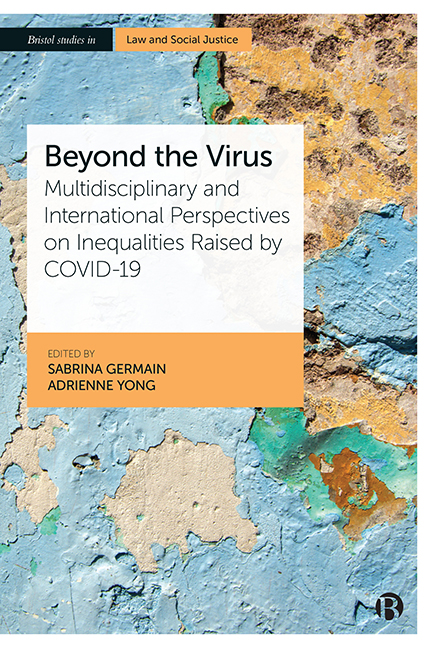 Beyond the Virus
Beyond the Virus 8 - Beyond the Rhetoric of Essentiality: Canada’s Neoliberal Migrant Worker Policy during the COVID-19 Pandemic
Published online by Cambridge University Press: 17 January 2024
Summary
Introduction
For decades, Canada has relied on migrants whose legal status in the country is temporary and/or conditional to fill critical jobs that are considered ‘dirty, dangerous and difficult’ and therefore shunned by local workers (Hennebry and Preibisch, 2012: e22). Between 1998 and 2017, the number of migrants in Canada who held work permits that became effective in a given year more than doubled from just under 111,600 to over 302,600 (Immigration, Refugees and Citizenship Canada, 2019). These temporary foreign workers play a particularly substantial role in the country’s food supply chain. In 2017, they made up 27 per cent of the workforce in the crop production industry, 5.6 per cent in animal production and aquaculture, and 3.4 per cent in food manufacturing. In the same year, they also accounted for nearly 10 per cent of all workers employed in private households as caregivers, housekeepers and so forth (Liu, 2020). Many of these temporary foreign workers lack a legal pathway to becoming permanent residents. Instead, they are often issued closed work permits that effectively tie them to specific employers if they wish to remain in or return to Canada (Preibisch, 2010).
Aside from migrants entering Canada through the various temporary worker programs, those who seek asylum in the country as well as those who are undocumented are also key to Canada’s essential industries. For example, at the start of the COVID-19 pandemic, many orderlies working in long-term care facilities in the province of Quebec were current or refused asylum seekers, including upwards of 5,000 Haitians that arrived after 2017, seeking to escape anti-immigration policies in the United States (Stevenson and Shingler, 2020). On the other hand, undocumented migrants, who numbered approximately half a million in Canada, are known to work predominantly in the construction, manufacturing, hospitality and domestic service sectors (Magalhaes et al, 2010). Like that of their temporary foreign worker counterparts, asylum seekers’ and undocumented migrants’ legal status is highly precarious, as their presence in Canada is typically marked by uncertainty, illegality and heightened deportability (Goldring et al, 2009).
- Type
- Chapter
- Information
- Beyond the VirusMultidisciplinary and International Perspectives on Inequalities Raised by COVID-19, pp. 164 - 184Publisher: Bristol University PressPrint publication year: 2023
